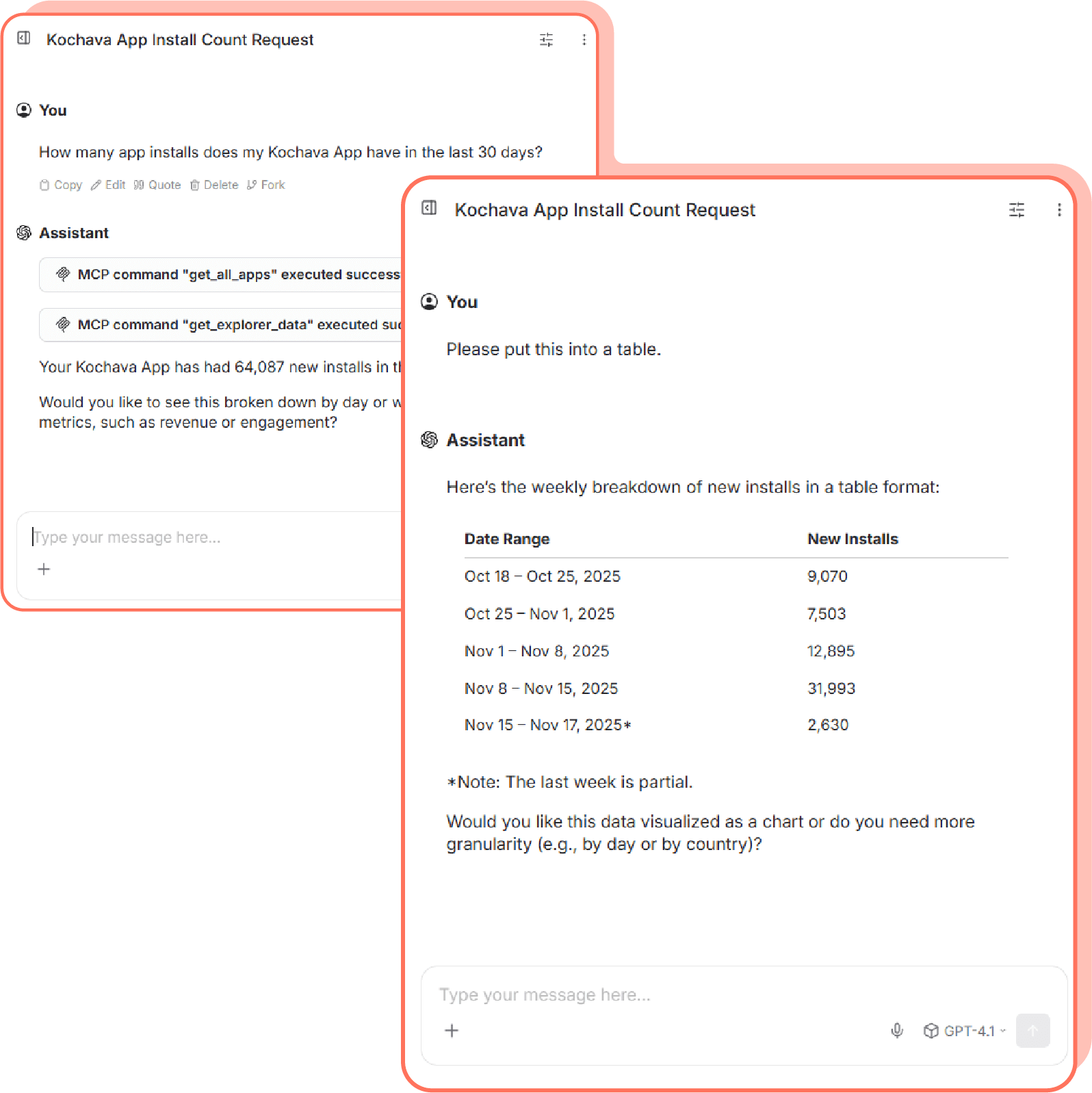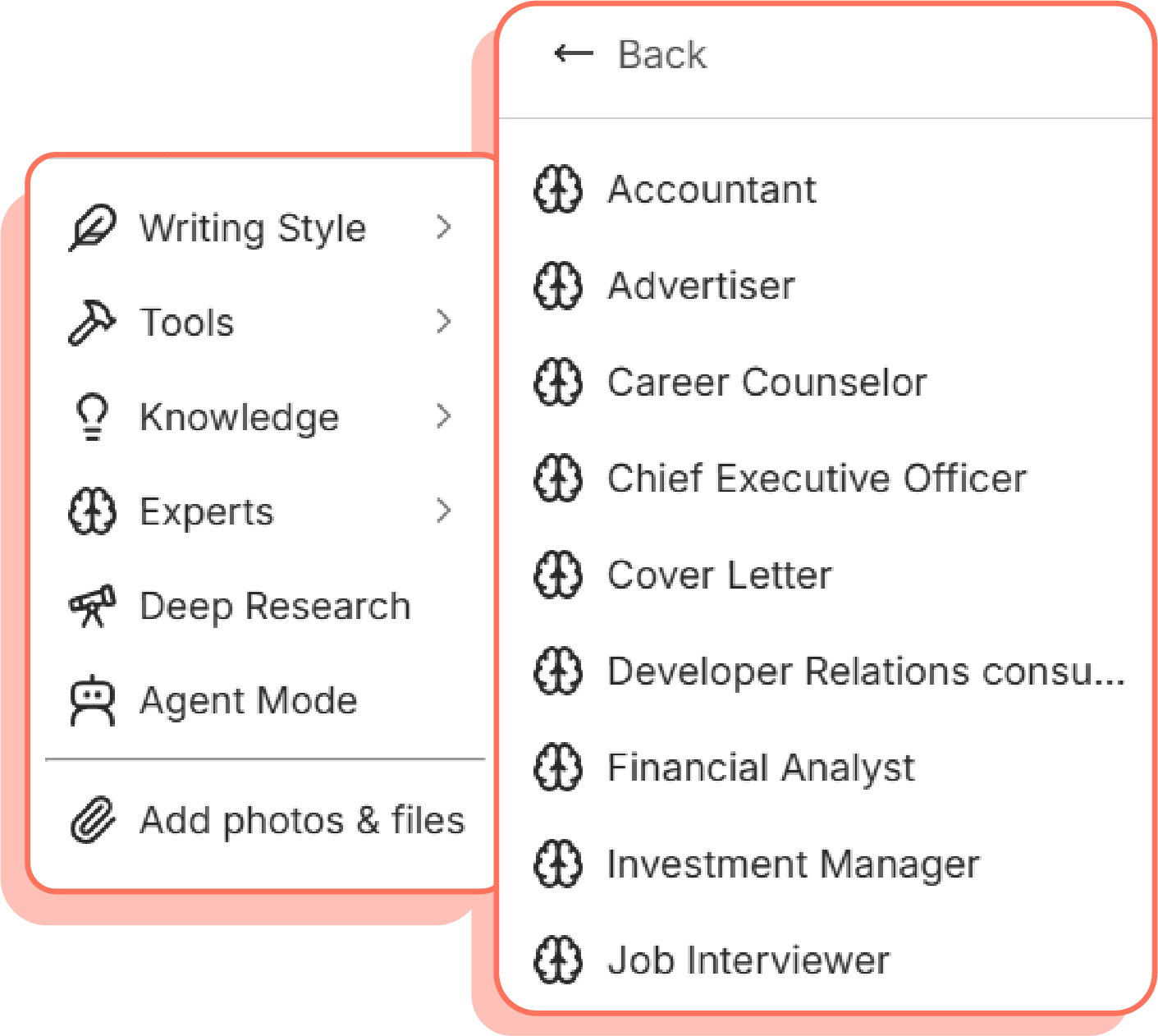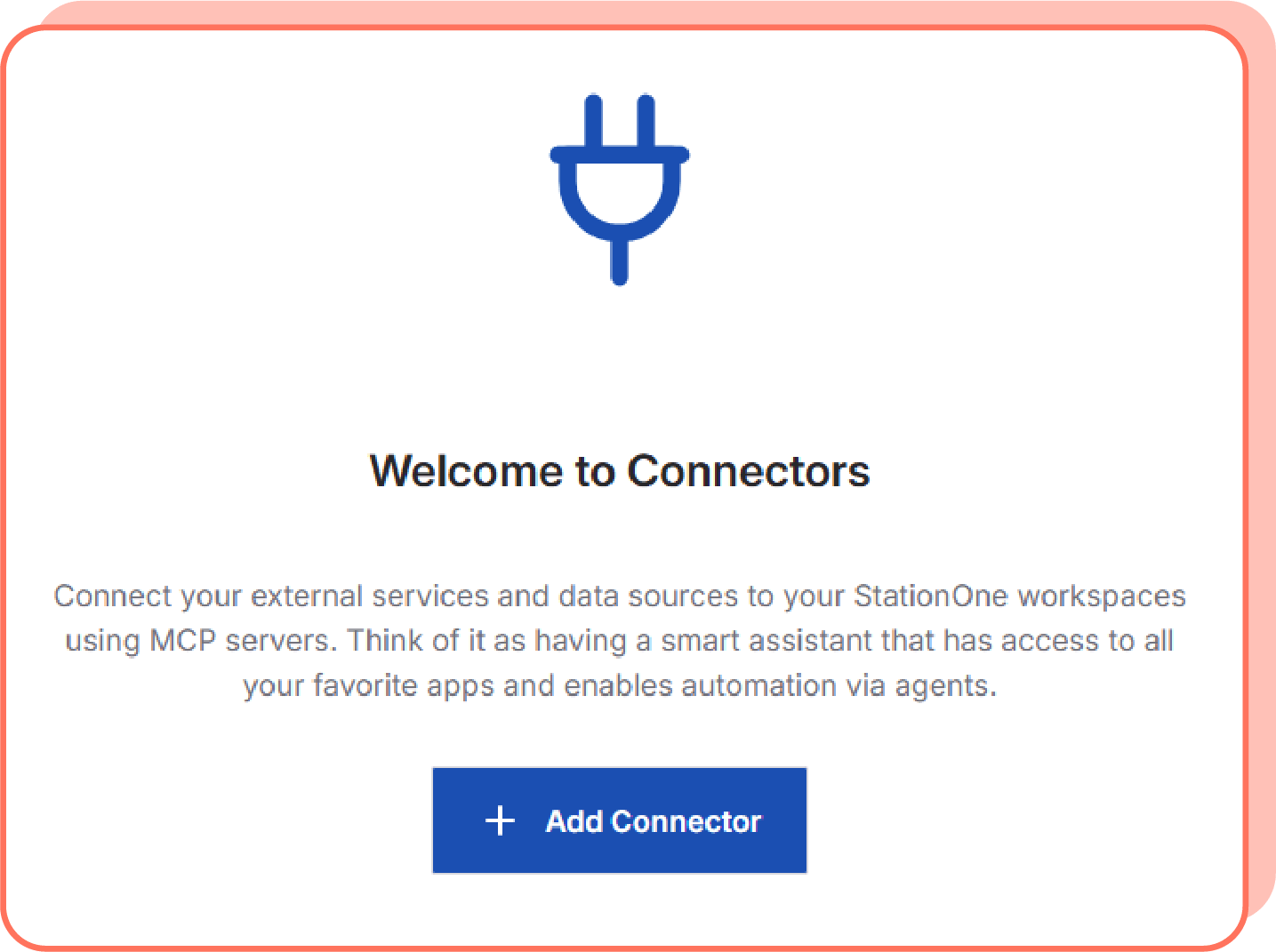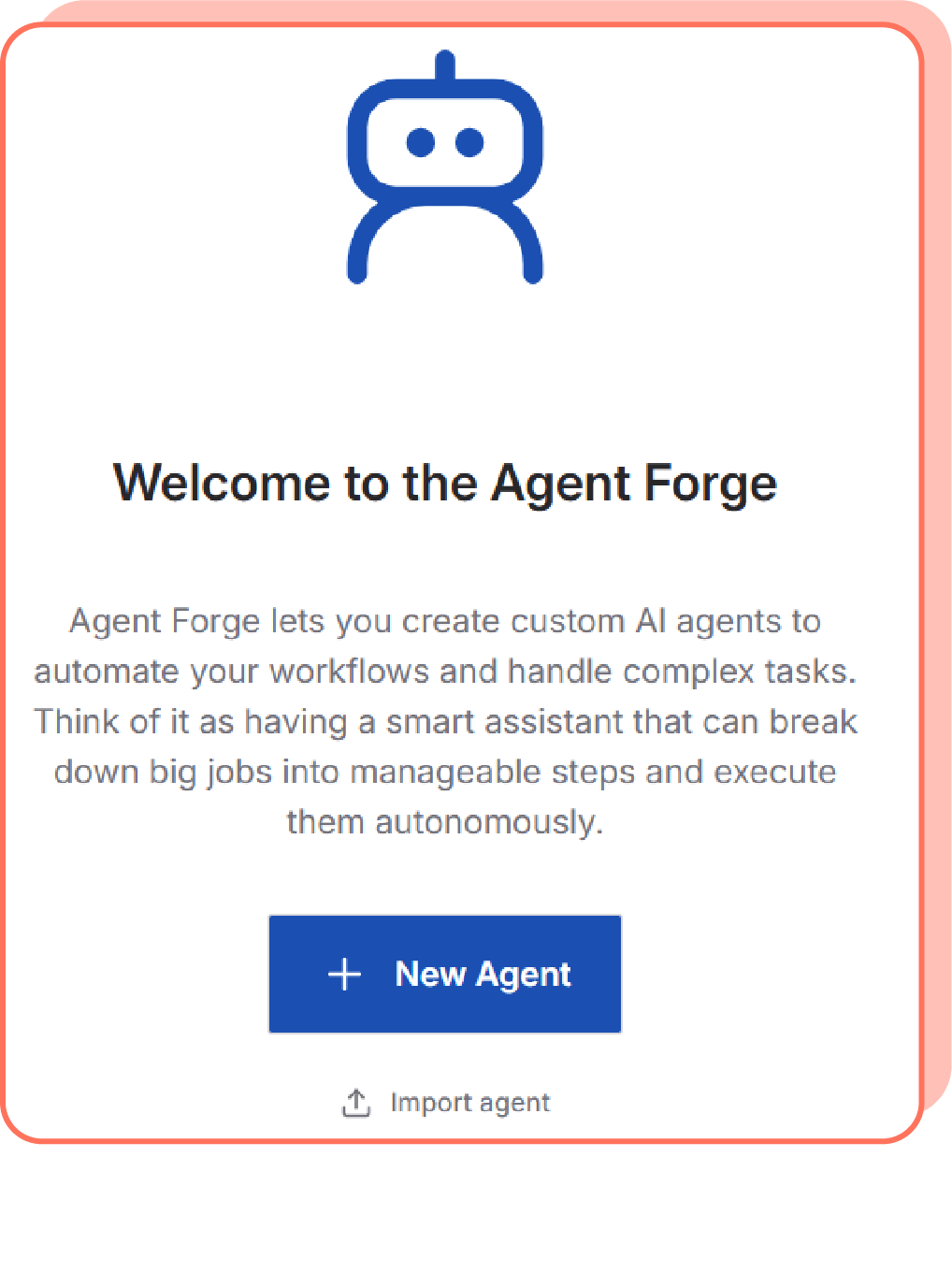Integrative AI + MCP servers from the ecosystem
TL;DR Summary
App marketers can now engage in AI-powered conversations with their app attribution data through Kochava Model Context Protocol (MCP) servers integrated within StationOne, Kochava’s new integrative AI hub. MCPs act as crucial intermediaries between large language models (LLMs) and external services like APIs and databases. The Kochava MCP release via StationOne ensures a curated experience, surrounding MCPs with the right context and prompt engineering. This approach tackles the industry challenge of standalone MCPs, which often produce inconsistent or inaccurate outputs… (click to expand)
StationOne functions as an orchestration layer—an independent and model-agnostic AI client/app that runs locally to provide complete privacy and security. Organizations can harness StationOne to deploy AI as a human extension, not a replacement. The five key components of StationOne include Workspaces (for partitioning use), Models (interoperability with LLMs and SLMs), Experts (pre-prompt templates for fine-tuning logic), Connectors (to integrate Kochava products and third-party tools including Gmail, Slack, and Salesforce), and Agent Forge (allows non-technical users to craft AI agents to automate complex workflows using simple language prompts). StationOne is currently in a private, invite-only beta. Request an invite at StationOne.ai/request-invite/.
App marketers can now conversationally engage with their app attribution data using Kochava Model Context Protocol (MCP) servers available within StationOne—the new integrative AI hub recently announced by Kochava. This MCP deployment strategy enables Kochava to curate the experience, validating and improving functionality by surrounding MCPs with the proper context and prompt engineering. In addition to the Kochava MCP servers, many others from the adtech ecosystem are also available.


Role of the MCP
MCP servers are specialized programs that expose specific tools, data, or capabilities to AI applications through a standardized protocol. Think of MCPs as an intermediary or translator between AI models and external services (e.g., databases, APIs). Large language models (LLMs) don’t speak well to APIs, so MCPs are the helpful interpreter, standardizing how AI models connect with outside tools and data sources.
While MCPs have proliferated across adtech and other industries, leveraging them effectively for generative AI workflows or agentic AI applications has proved challenging. Without sophisticated context engineering and consistent function parameter handling, MCPs can produce inconsistent outputs with varying accuracy and blatant hallucinations.

“Early on, it was clear that standalone MCPs would struggle to hit the mark for our customers. The advertising ecosystem is chock-full of nuance and context that requires understanding. StationOne delivers an orchestrated result from the ingredients of MCPs, meaningfully mapped with the relevant context built in.”
Charles Manning
Founder & CEO, Kochava

What Is StationOne?
StationOne is an integrative AI hub uniting the key building blocks that enable individuals and organizations to build AI agents for their unique workflows. It’s an orchestration layer with choice, security, and agentic intelligence for deploying AI as a human extension, not a human replacement.
While the focus is to address needs for Kochava clients and partners in the advertising ecosystem right away, it’s important to note that the scope of StationOne isn’t limited to advertising. As a downloadable AI client/app, StationOne runs on your own desktop or local environment to provide complete privacy and security. The functionality can be tailored to fit the specific needs of individuals, teams, and entire organizations across industries and verticals.

How StationOne Works
StationOne features many layers and components. We’ll unpack the five primary ones here.

1. Workspaces
Workspaces are the fulcrum of functionality in StationOne and the primary mechanism of partitioning use of the product. Users can either configure workspaces for their productivity or join existing workspaces that are already curated and customized for their specific use cases.
Workspace Examples
- App marketer workspace by app or channel
- Agency workspace by advertiser client
- CMO workspace by product or business unit
2. Models
StationOne is interoperable with a host of online models across providers (e.g., Anthropic, OpenAI) of both large language models (LLMs) and small language models (SLMs).
Additionally, StationOne supports custom and/or on-premises models. This provides much-needed flexibility when choosing which models an organization adopts, while avoiding the need to lock in on a single model. Many other AI clients on the market are built by model providers, intrinsically limiting user choice. Much like our measurement philosophy, StationOne is independent and agnostic.


3. Experts
Experts are pre-prompt templates carefully engineered with the right context. They enable users to fine-tune pre-prompting logic and behavior specific to models and intended objectives. Experts can be categorized and included in the scope of conversations, agents, or other functions of StationOne.
A library of experts is included out of the box with StationOne. Users can also create their own experts to fine-tune pre-prompts specific to their needs. Experts can be exported and shared to standardize pre-prompt engineering for continuity and scalability across departments and entire organizations.
4. Connectors
Connectors offers access to a rich MCP marketplace of curated, authenticated flows for connecting third-party tools and data sources into the StationOne inference system. Once connected, these tools can be incorporated into your conversations and/or agentic workflows.

The MCP marketplace is rapidly expanding and already features Kochava products as well as popular tools including Asana, Gmail, Google Drive, Slack, Github, Salesforce, Meta Ads, and more.

The Kochava MMP MCP provides a variety of GET functions to retrieve data and insights from your Kochava account. In the future, tools will be added to enable POST functionality to activate change in your Kochava account (e.g., SmartLink and tracker creation, postback configuration updates, audience activation).
5. Agent Forge
Agent Forge is where you craft and mold AI agents. For many non- or semi-technical professionals, knowing how to even begin coding an agent may be daunting. StationOne makes the process approachable and accessible by using conversational, simple language prompts. A straightforward widget helps you describe the purpose, goals, and other details for your agent—then StationOne automatically generates it for you. Once complete, you can test and fine-tune specifics within the agent’s execution steps and workflows.
Example Agent Use Case
Agent: Key Metrics Reports for CMO
Scenario: Let’s take a mobile app user acquisition manager who needs to send a recurring, weekly key metrics report to leadership or the CMO.

Here’s how you would go about automating this workflow with agentic AI via StationOne:
- Download and install StationOne
- Integrate preferred model provider (e.g., OpenAI, Anthropic)
- Authenticate Connectors via MCP marketplace:
- Kochava MMP (access app and attribution data)
- Gmail (messaging tools to enable report delivery)
- Open Agent Forge and create agent to
- Pull and analyze summary data from Kochava via Kochava MMP MCP
- Create key metrics summary report that consults these experts:
- Advertiser
- Data Scientist
- Draft email in your inbox with report included via Gmail MCP
- Review the email before sending to leadership
Configurations can be customized to trigger this agent’s task on a daily, weekly, monthly, or on-demand basis.
This is just one AI agent example. Imagine what you could create based on your unique tasks, projects, and workflows. The ultimate goal is to level up your engagement with AI. Instead of just asking questions and getting summaries and outputs, give AI specific tasks, to-dos, and deadlines to free up more of your time for tackling bigger projects and growth objectives.
For now, agents created in Agent Forge can be run only from your local instance of StationOne. In the future, StationOne will support cloud-deployed agents where authoring can happen locally, then runtime deployed to the cloud for continuous execution.
Join the StationOne Beta—Build a Workspace or Create New Agents
Whether you want to harness StationOne for AI-powered conversations with your Kochava data or go agentic and build out AI agents to tackle your workflows, we invite you to jump in and start exploring.
StationOne is currently in a private beta. All existing Kochava customers are invited and should have already received an invite code. If you’re a Kochava customer and did not receive a code, please visit StationOne.ai/request-invite/, and our team will send you a new invite.
StationOne is available for Windows, Mac, and Linux and can be downloaded by visiting StationOne.ai/download/.
To hear about future updates for StationOne and other Kochava products, subscribe to our newsletter.




